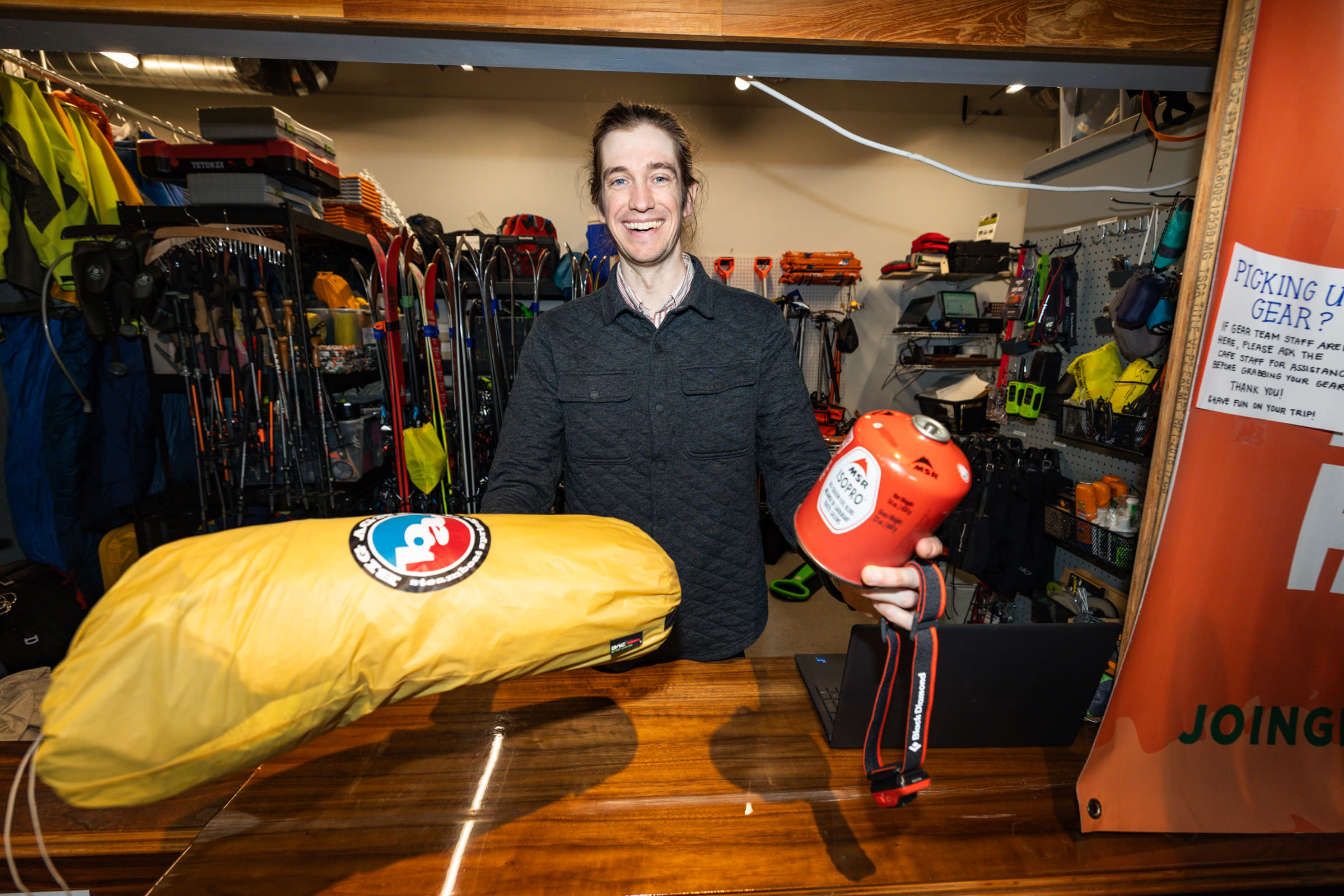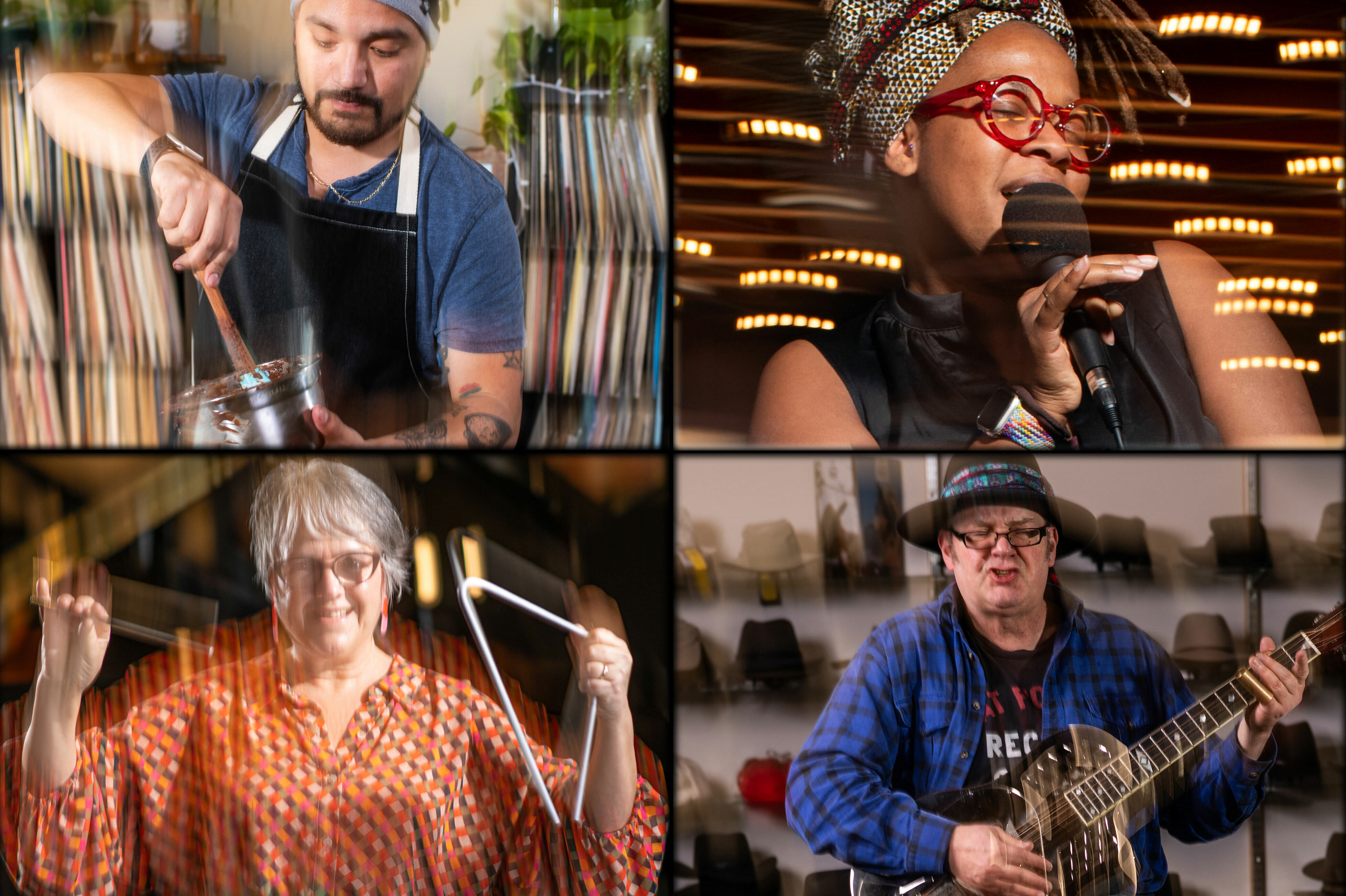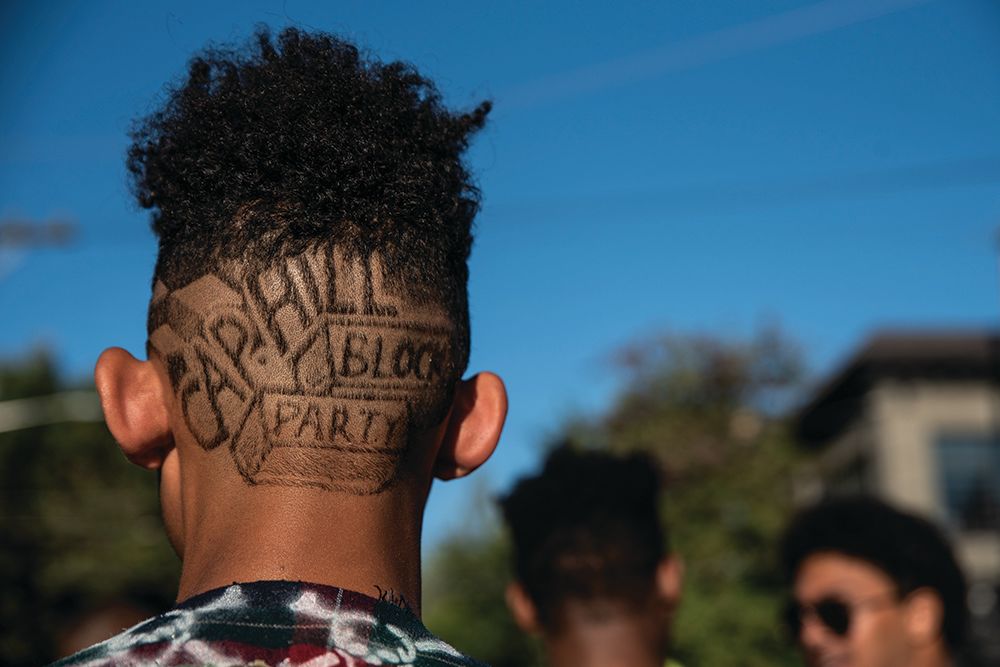Ballard's Creepiest Curiosity Shop Reminds Us to Be Weird

Image: Seattle Met Composite
Almost everything is for sale, except the two-headed cow. Down a flight of stairs on Ballard's busiest shopping street, Ballyhoo Curiosity Shop has antique dishes for sale, some tinged with glow-in-the-dark uranium. There are antique dolls and a taxidermied raccoon giving the finger. Bug and butterfly specimens, a box of skeleton keys, weird old books. But the two-headed calf is for display only.
"I can't remember a time I didn't collect things," says Ballyhoo owner Ryan Robbins, who as a kid adored Ye Olde Curiosity Shop on Seattle's waterfront. That historic curio store dates back to 1899, selling tchotchkes and oddities alongside the display of Sylvester the Mummy, rumored to be the body of a Wild West gunslinger. "I don't think any place fascinated me more," says Robbins. "Things that made me feel a little uncomfortable...a little scared."
Robbins brought that ethos into his creation of Ballyhoo in 2015 after running a successful flea market booth. He took his collection of weird stuff—"30 Rubbermaid tubs of things too cool to sell on eBay"—to a basement space in Ballard.
The underground placement wasn't ideal, given that he can touch the ceiling in the shop and grumbles about hanging his giant stuffed moose head at waist height. But descending the staircase from the street, past weird paintings and fun-house mirrors, accentuates the transportive nature of Ballyhoo. For a moment, you can truly believe this little hidey-hole is infused with magic; that it disappears and reappears with the full moon.
When Robbins first opened, he stocked his wares in neat, sparse displays—and saw shoppers mistake the limited inventory for a popup. Since then he's embraced the clutter of the classic curiosity shop, piled with treasures like a madman's attic. "I'm like Marie Kondo's evil twin, the ultimate maximalist," says Robbins.
Shelves of slightly creepy antique toys run to tarantulas caught in resin. A fossilized mammoth tooth in one case and antique jewelry in the next. Most things are one of a kind, and it demands the kind of shopping experience we don't get often anymore: slow. In-person. Social. How many times a day do these walls hear, "Come take a look at this!"?

They're human, they're real, and they're not cheap: retired medical specimens at Ballyhoo.
Image: Allison Williams
Like most curiosity shops, a creepy vibe lingers over the whole enterprise. Not just the dead things, of course, but in the old black and white photographs of stoic faces, staring from the shelves. "You see Victorian photos and you know there's no way that person is still among us," says Robbins. "Memento mori. Remember that we all die."
For all the taxidermied warthogs and vintage tobacco tins, the shop's most striking wares are its human bones. A human sternum, foot, or scapula. A price tag dangles from a full skeleton: $3,500. Yes, says Robbins, they're real. But while it's legal to sell human remains in Washington (as long as you have proof of provenance and they're not Indigenous), he limits his offerings to educational aids. Not only are most of his specimens retired from medical schools, some from University of Washington, he sells most to folks with professional anatomical interest—massage therapists, chiropractors.
"I like the dark stuff, but I don't think messing around with human remains is a novelty thing," says Robbins. Having studied biology in college, his goal is something akin to a museum experience in a retail environment.

Robbins bought the two-headed calf from a collector, but it spent time in a sideshow before that.
Image: Allison Williams
For animals, on the other hand, the gawk factor is dialed up to 10. Most of the taxidermied raccoons and possums were roadkill, while the hunting trophies are vintage. That two-headed cow, a placard explains, lived 20 weeks in Yakima in the 1940s before it was stuffed and put on display. Even as the era of sideshows has passed—for many good reasons—the physical objects they carried endure, and many ended up in places like this. (Sylvester the Mummy did a stint in one too.) Here, ogling at weird stuff isn't rude or out of fashion, it's inevitable.
Curiosity shops are, in the end, as much about experience as acquisition. One could never bring all the singular sights home, so a shopper exits with one or two oddities and a dozen or two memories. Mystery boxes sell well, a way to escape decision fatigue and prolong the aura of the unknown until later. (I bought one $20 box and ended up with a rabbit's foot, plastic skeleton hand, VHS copy of Grease, and a break-your-own geode, among other treasures.)
Seattle is something of locus for this kind of retail, thanks to Ye Olde Curiosity Shoppe—a place Robbins is sure to revisit at least once a year. Extant oddity stores exist in South Park and Ravenna, while former brick-and-mortars Nevertold Casket Company and No Parking on Pike have gone online.
In a neighborhood of increasingly expensive real estate, Ballyhoo holds on to the out-of-the-way character that once defined Ballard. It took Robbins a long time to come up with the name for his curiosity shop, the absolute hardest part of the endeavor. Scouring a sideshow terminology dictionary for ideas, he saw a word with perfect alliteration with Ballard, but also with the ideal meaning. "To create a ballyhoo is to draw someone in to something," he says. "Create a hubbub so people are captivated and have to pay attention."




